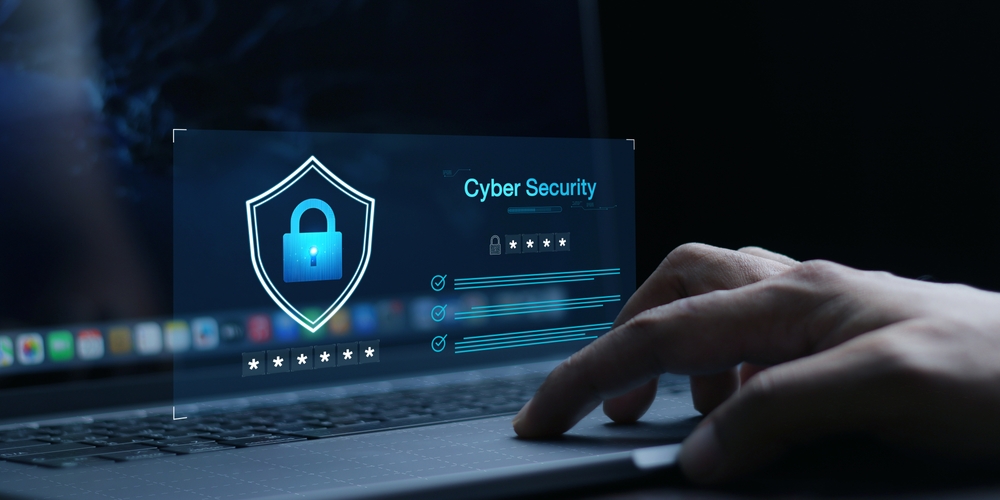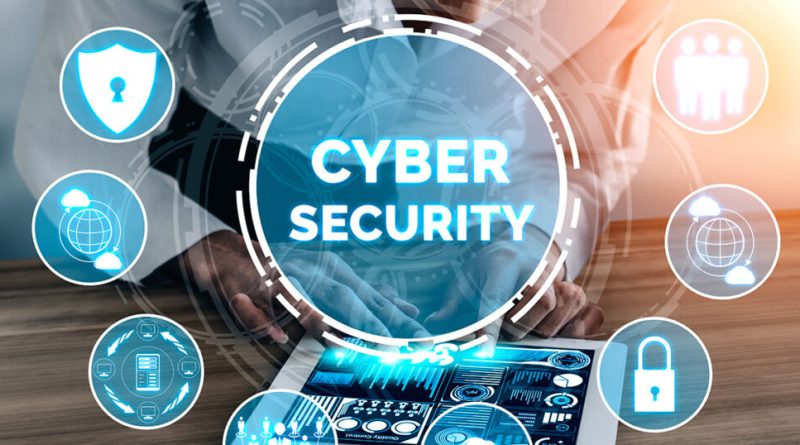Cybersecurity Services for Businesses: Protecting Your Digital Assets
In today’s hyper-connected world, businesses rely heavily on digital technologies to operate efficiently. Whether it’s storing sensitive client data, managing financial transactions, or leveraging cloud platforms for productivity, every company—big or small—has digital assets that need protection. However, as businesses become more digital, cybercriminals become more sophisticated. Ransomware, phishing, data breaches, and insider threats are on the rise, costing organizations billions each year.This is where cybersecurity services for businesses play a crucial role. They safeguard networks, systems, and data against unauthorized access, disruptions, and theft.
Why Cybersecurity Matters for Businesses
1. Rising Cyber Threats
Cybercrime damages are projected to reach $10.5 trillion annually by 2025. Hackers exploit vulnerabilities in networks, applications, and human behavior to steal or ransom valuable information.
2. Protecting Sensitive Data
Businesses handle customer information, trade secrets, and financial records. A single breach can destroy trust, cause legal issues, and result in financial losses.
3. Regulatory Compliance
Industries such as healthcare, finance, and e-commerce must comply with regulations like GDPR, HIPAA, and PCI-DSS. Non-compliance can lead to hefty fines.
4. Reputation Management
One cyber incident can cause severe reputational damage, making customers hesitant to do business with you.
Types of Cybersecurity Services for Businesses
1. Network Security Services
Protects business networks from unauthorized access, malware, and misuse. This includes firewalls, intrusion detection systems (IDS), and intrusion prevention systems (IPS).
2. Cloud Security Services
As companies move data and apps to the cloud, cloud security ensures encryption, identity management, and secure access. Providers like AWS, Microsoft Azure, and Google Cloud offer built-in security solutions.
3. Endpoint Security
Protects laptops, desktops, smartphones, and IoT devices connected to a company’s network from being exploited by cybercriminals.
4. Data Security & Encryption
Ensures that sensitive business data is encrypted both in transit and at rest, preventing unauthorized access even if data is stolen.
5. Identity & Access Management (IAM)
Controls who can access what within an organization, using multi-factor authentication (MFA), single sign-on (SSO), and role-based access control.
6. Managed Detection & Response (MDR)
Outsourced service that provides real-time monitoring, threat detection, and rapid response to cyberattacks.
7. Vulnerability Assessment & Penetration Testing (VAPT)
Helps identify and fix system weaknesses before hackers exploit them. Ethical hackers simulate real-world attacks to find gaps.
8. Security Awareness Training
Employees are often the weakest link. Training helps them recognize phishing emails, social engineering, and other scams.
9. Incident Response & Recovery
Specialized teams respond to cyber incidents, contain damage, and help businesses recover quickly.
10. Compliance & Risk Management
Services that ensure businesses comply with local and international cybersecurity laws while managing risks effectively.
Benefits of Cybersecurity Services
-
Financial Protection – Avoid losses due to ransomware, fraud, and lawsuits.
-
Business Continuity – Minimize downtime during cyber incidents.
-
Customer Trust – Strong security builds brand reputation and loyalty.
-
Competitive Advantage – Companies with robust cybersecurity stand out in the market.
-
Legal Compliance – Meet regulatory requirements without penalties.
-
Peace of Mind – Focus on business growth instead of worrying about cyber threats.
Challenges Businesses Face in Cybersecurity
-
Evolving Threat Landscape – Hackers constantly develop new techniques.
-
Shortage of Cybersecurity Professionals – Skilled experts are in high demand.
-
High Costs for Small Businesses – Premium solutions may be expensive.
-
Third-Party Risks – Vendors and partners may be weak security links.
-
Employee Negligence – Lack of awareness leads to accidental breaches.

How to Choose the Right Cybersecurity Service Provider
-
Evaluate Business Needs – Identify whether you need cloud, endpoint, or full-spectrum protection.
-
Check Industry Expertise – Choose providers with experience in your industry.
-
Look for 24/7 Support – Cyberattacks don’t follow business hours.
-
Scalability – Ensure services can grow with your business.
-
Certifications & Compliance – Check if providers meet ISO, SOC 2, or GDPR standards.
-
Cost vs. Value – Balance affordability with effectiveness.
Future of Cybersecurity Services for Businesses
-
AI & Machine Learning in Cyber Defense – Automated threat detection and predictive analysis.
-
Zero Trust Architecture – “Never trust, always verify” approach to access control.
-
Quantum-Safe Security – Preparing for future quantum computing threats.
-
Blockchain Security – Securing transactions and data integrity.
-
Cybersecurity as a Service (CSaaS) – Affordable, subscription-based protection for SMEs.
Best Practices for Businesses
-
Implement multi-factor authentication for all employees.
-
Regularly update and patch systems.
-
Backup data frequently and test recovery processes.
-
Restrict admin access to essential personnel only.
-
Monitor and log all network activity.
-
Conduct annual penetration testing.
-
Provide continuous employee training.
Cybersecurity in Action
Case Study 1: Small Business Avoids Ransomware Attack
A retail startup used managed detection and response (MDR). When ransomware was detected, the system isolated affected servers and prevented data loss, saving thousands of dollars.
Case Study 2: Healthcare Firm Achieves HIPAA Compliance
A healthcare company partnered with a cybersecurity firm to implement encryption and IAM solutions. This not only ensured compliance but also prevented a data breach involving sensitive patient records.
Case Study 3: Financial Institution Enhances Fraud Detection
A bank adopted AI-powered cybersecurity services that reduced phishing fraud attempts by 85% within the first six months.
Conclusion
Cybersecurity services are no longer optional they’re essential for survival in the digital age. Businesses that fail to secure their networks and data face risks of financial losses, reputational damage, and regulatory penalties. By investing in robust cybersecurity services, companies can not only protect their digital assets but also gain a competitive edge.The key is to view cybersecurity not as an expense but as a long-term investment in your business’s future.
Frequently Asked Questions (FAQ)
Q1. What are cybersecurity services for businesses?
Cybersecurity services are solutions and strategies designed to protect a company’s digital assets—such as data, networks, and applications—from cyber threats like hacking, ransomware, and phishing.
Q2. Why are cybersecurity services important for small businesses?
Small businesses are frequent targets for cybercriminals because they often have weaker security systems. Cybersecurity services help protect sensitive data, ensure compliance, and maintain customer trust.
Q3. What types of cybersecurity services are most common?
The most common include network security, cloud security, endpoint protection, identity and access management (IAM), vulnerability assessments, penetration testing, managed detection and response (MDR), and employee training.
Q4. How do cybersecurity services prevent data breaches?
They use firewalls, encryption, access controls, monitoring, and real-time threat detection systems to block unauthorized access and minimize risks of breaches.
Q5. Are cybersecurity services expensive?
Costs vary depending on the scope and provider. While enterprise-level services can be costly, there are affordable solutions and subscription-based cybersecurity services (CSaaS) for small and medium businesses.
Q6. Do businesses need cybersecurity even if they don’t store sensitive data?
Yes. Even if you don’t store customer data, your business could still be targeted for financial fraud, ransomware, or to use your systems in larger cyberattacks.
Q7. How can employees improve cybersecurity in a business?
By following best practices like using strong passwords, enabling multi-factor authentication, avoiding suspicious emails, and participating in regular cybersecurity training.
Q8. What is the role of AI in cybersecurity services?
AI helps detect unusual patterns, predict attacks, and automate responses to threats, making cybersecurity more effective and proactive.
Q9. How do I choose the right cybersecurity service provider?
Look for providers with industry expertise, compliance certifications, 24/7 monitoring, scalable solutions, and a strong reputation for customer support.
Q10. What is the future of cybersecurity for businesses?
The future includes zero trust models, AI-driven security, blockchain-based verification, and quantum-safe encryption, ensuring businesses are prepared for advanced threats.




